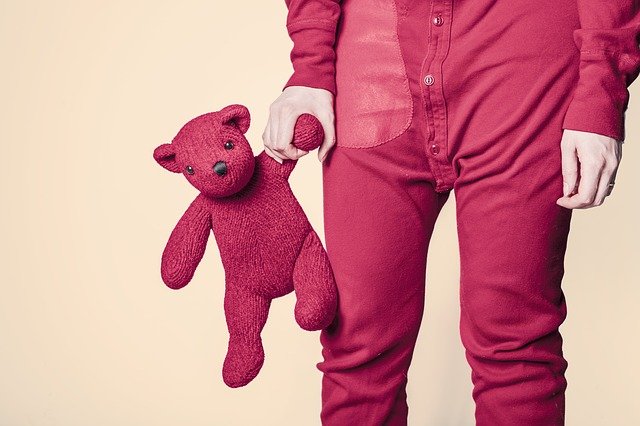At the ages we support we have seen children trying every manner of ploy to get their way. Pouting, tantrums, arm crossing, yelling, and many of the granddaddy of them all – “NO!”. And this is expected. Just as an infant cries to fulfill needs it doesn’t understand, younger children try a variety of things in an attempt to get what they want or need. This isn’t “mean” manipulation any more than an infant crying would be considered so. These behaviors are simply an expression of the limited experience and tools that a young child possesses. When a child gets a response they want they will make the connection between their behaviors and that response and this will shape how children interact with the world and what they expect the world to do in return. Just as we want our toddlers to start using words to tell us what they need rather than continuing to cry over every desire as they did when they were infants, we need our primaries and kindergarteners to find ever more positive ways to express their needs and feelings as well as improving how they interact with the world.
As parents it is critical that we have a broad, long-term view of what our children are learning and how it will effect their emotional development. This can help us focus on the end goal of full emotional development when our heart strings are being tugged in ways that don’t benefit our child. Emotional maturity doesn’t happen on some set schedule where all children should be at a given point on a certain date. But developing it should be a goal for us to see our child exhibiting it in very clear ways by the time they enter elementary school. Emotionally mature children do better in school, with interpersonal relationships, and with group activities. Emotionally immature children tend to become emotionally immature teenagers, then emotionally immature pseudo-adults. I regret to say that in the work world I have seen way too many 30-year-old children. None of them appear to be reaching their potential.
What does an emotionally immature “adult” look like/what does a child who doesn’t master emotional maturity become? The tantrum throwing four-year-old doesn’t look much different at twenty-five.
– They are moody and/or depressed.
– They eschew responsibility for pleasure, frequently missing work or school in favor of late nights or simply sleeping in (this doesn’t have to be – and actually shouldn’t be considered “normal” at any age).
– They are demanding of others to cater to their needs and whims.
– They frequently blame others and refuse to take blame for their mistakes.
– They feel inadequate and are easily discouraged.
– They tend to act first and think later.
– They are impetuous.
– They offend easily.
– They are overly negative and critical toward life.
– They are prone to daydreaming and fantasy rather than engaging reality.
– They rationalize away their negative behavior or rationalize their way into negative beliefs and actions.
– They do not understand that the rules apply to them and that their behavior effects others.
As parents we get stuck on some very bad ideas when it comes to behavior. We have heard countless times how “I tell them all the time” or “I have tried everything”. But just as a twenty-five-year-old child is actually responsible for their behavior, so is a four year old. Mom and Dad – you can’t make their choices for them – whether in regard to behavior or what it is they will enjoy doing later in life. What you can and should do is arm them with the tools that will define them as emotionally mature, happy, and admirable adults who are capable of self-reliance. Ultimately – teaching a child that they have the power to choose their actions as well as how they respond to external stimuli is the greatest gift you can give to them. These are the tools that will empower them to what it is we really want for them:
– general happiness/life satisfaction
– positive relationships
– the respect of others
– living the values that we teach at Greystone House
Beyond the obvious – being emotionally mature yourself (never give in to “I can’t adult today” – yes you can), modeling appropriate behavior and being very consistent as parents – there are tools you can use beyond lecture and there are scenarios you can create that will facilitate emotional maturity “practice”.
Play honest and fair at games – don’t always let your child win. Have you ever met an adult that wins at something every time? Of course not. Sadly, it is likely we have all met someone that reacts very poorly when they lose. This stems from lack of practice losing gracefully among other things.
Build in moments to practice patience. There are times when your child wants to do something right now. Even when you can do it – don’t just jump. Tell them “I have to wipe down the kitchen counters” or “the floor needs swept first” and then “we can do what you want””. You can even say “if you help me – we can get to the fun stuff faster”.
Don’t play the apology game. Your child may negotiate continuously for five more minutes of TV in the morning – but when five minutes is up it should never be five more minutes and then “I’m sorry, but we really have to go – I’ll make it up to you”. It should be “I can see you are upset and don’t want to follow the rule we agreed on” then take them to school. Don’t allow them to use such negative manipulation techniques and do not apologize.
If you really want to commit – try the button game. Find a wall in your house that has some space open at the height of your child. Work with them to make some buttons to hang on the wall that reflect some desired actions. You might have buttons that say “Hug” or “Smile” or “I am tired”. You can also have buttons that say “Stop being mean” or “Try a better behavior”. The idea is that anyone can hit a button and it is a request to someone else. Tap hug and someone gives you a hug. Tap on “Try better behavior” and the person who needs to change their behavior can try something else. Why is this a big commitment? Because your children can call you out on your behavior as well.
Ultimately, we all know that not every moment in life is going to be how we want it to be. Preparing our children with the tools to engage with the world as it is helps to create an adult capable of reaching a state of eudaimonia.





